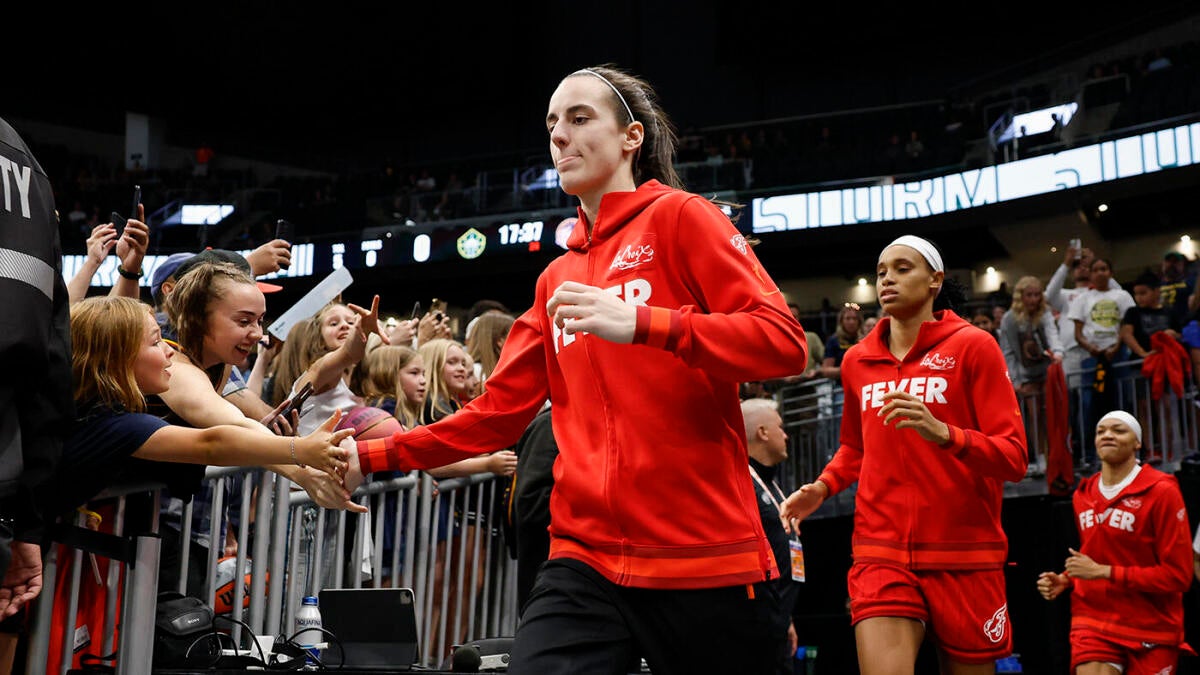The Indiana Fever’s path to the WNBA Commissioner’s Cup Final has been overshadowed by uncertainty surrounding Caitlin Clark’s availability. The rookie phenom, who has become a focal point for both the Fever and the league, is currently sidelined due to a left groin injury. This marks her third consecutive game on the bench and the eighth game she has missed this season due to quad and groin issues. As the Fever prepare to face the Minnesota Lynx in the Commissioner’s Cup Final, the question of Clark’s status looms large, casting a shadow over their prospects.
Clark’s rookie season has been marked by physical challenges that have tested her resilience and the team’s adaptability. Earlier in the season, she missed seven games due to a left quad strain, diagnosed on Memorial Day. This initial setback kept her out for three weeks, disrupting her rhythm and the team’s chemistry. Now, with the groin injury, concerns are mounting about the cumulative effect of these physical ailments on her performance and overall well-being. The groin injury surfaced last week, forcing Clark to miss two consecutive games leading up to the Commissioner’s Cup Final. The team initially listed her as questionable, leaving fans and analysts guessing about her potential participation. Reports indicated that she was limited in practice, participating primarily in non-contact shooting workouts. This cautious approach suggested the Fever were prioritizing her long-term health over immediate gains. However, despite initial hopes, Clark has been officially ruled out for the Commissioner’s Cup Final. This announcement marks her third consecutive game on the sidelines and her eighth missed game of the season due to quad and groin issues.
The impact of Clark’s absence on the Fever’s chances against the Lynx cannot be overstated. As the team’s star point guard, she brings a unique blend of scoring prowess, playmaking ability, and court vision. Her ability to create opportunities for herself and her teammates is a crucial component of the Fever’s offense. Without her, the team will need to rely on other players to step up and fill the void. The pressure will be on players like Aliyah Boston and Kelsey Mitchell to elevate their games. Boston, the Fever’s other cornerstone player, will need to assert herself in the paint and provide a strong interior presence. Mitchell, a seasoned veteran, will need to take on a more significant scoring load and provide leadership on the court. The Fever’s coaching staff will also need to make strategic adjustments to compensate for Clark’s absence. This may involve tweaking the offensive game plan, emphasizing ball movement, and creating opportunities for open shots. Defensively, the Fever will need to be more disciplined and focused, limiting the Lynx’s scoring opportunities.
Despite the disappointment of missing the Commissioner’s Cup Final, there is a silver lining for Clark and the Fever. The team’s coaching staff has emphasized the importance of prioritizing the “big picture,” suggesting that they are taking a long-term view of Clark’s development and career. By being cautious with her injuries and allowing her to fully recover, the Fever hope to ensure that she is healthy and ready to contribute at her full potential for years to come. The WNBA Commissioner’s Cup is an in-season tournament that adds another layer of excitement and competition to the regular season. Games played in the first half of the season count towards the Commissioner’s Cup standings, with the top teams from each conference advancing to the championship game. The Commissioner’s Cup also has a charitable component, with teams playing for a donation to a local organization of their choice.
Caitlin Clark’s absence is not just a blow for the Indiana Fever, but also a missed opportunity for the WNBA. Clark has brought unprecedented attention to the league, with her games drawing record crowds and television ratings. Her presence in the Commissioner’s Cup Final would have undoubtedly amplified the event’s visibility and generated even more excitement. The Fever’s cautious approach to Clark’s injury suggests a long-term commitment to her health and development. As Clark recovers and prepares for the remainder of the season, the Fever will need to find ways to compete and improve without their star player. The journey may be challenging, but it is also an opportunity for growth and resilience. The Fever’s response to this adversity will define their season and shape their future.











